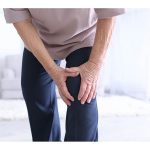
Toss out your salt shaker if you want to lower your risk of heart disease, a new study suggests. Even if you already follow a low-salt diet, sprinkling salt on your food can raise your risk for heart disease, heart failure and plaque in cardiac arteries, researchers report. “Compared with people who always added salt to foods — usually at the table — those who sometimes, rarely or never added salt to foods had up to 37% reduction in the risk for cardiovascular disease,” said lead researcher Dr. Lu Qi, a professor in the department of epidemiology at Tulane University School of Public Health and Tropical Medicine in New Orleans. “Our findings suggest the potential to prevent cardiovascular disease through behavioral changes — reduction of adding salt to foods,” he said. This study, published Nov. 28 in the Journal of the American College of Cardiology, cannot prove that adding salt to your food causes heart disease, only that the two are related. For the study, Qi and his colleagues collected data on the use of salt among more than 176,000 adults. They also looked at the association among adding salt to foods, the DASH diet and the risk for heart disease. The DASH diet was designed to lower blood pressure and is rich in fruits, vegetables, whole grains and low-fat dairy foods. It includes meat,… read on > read on >


















